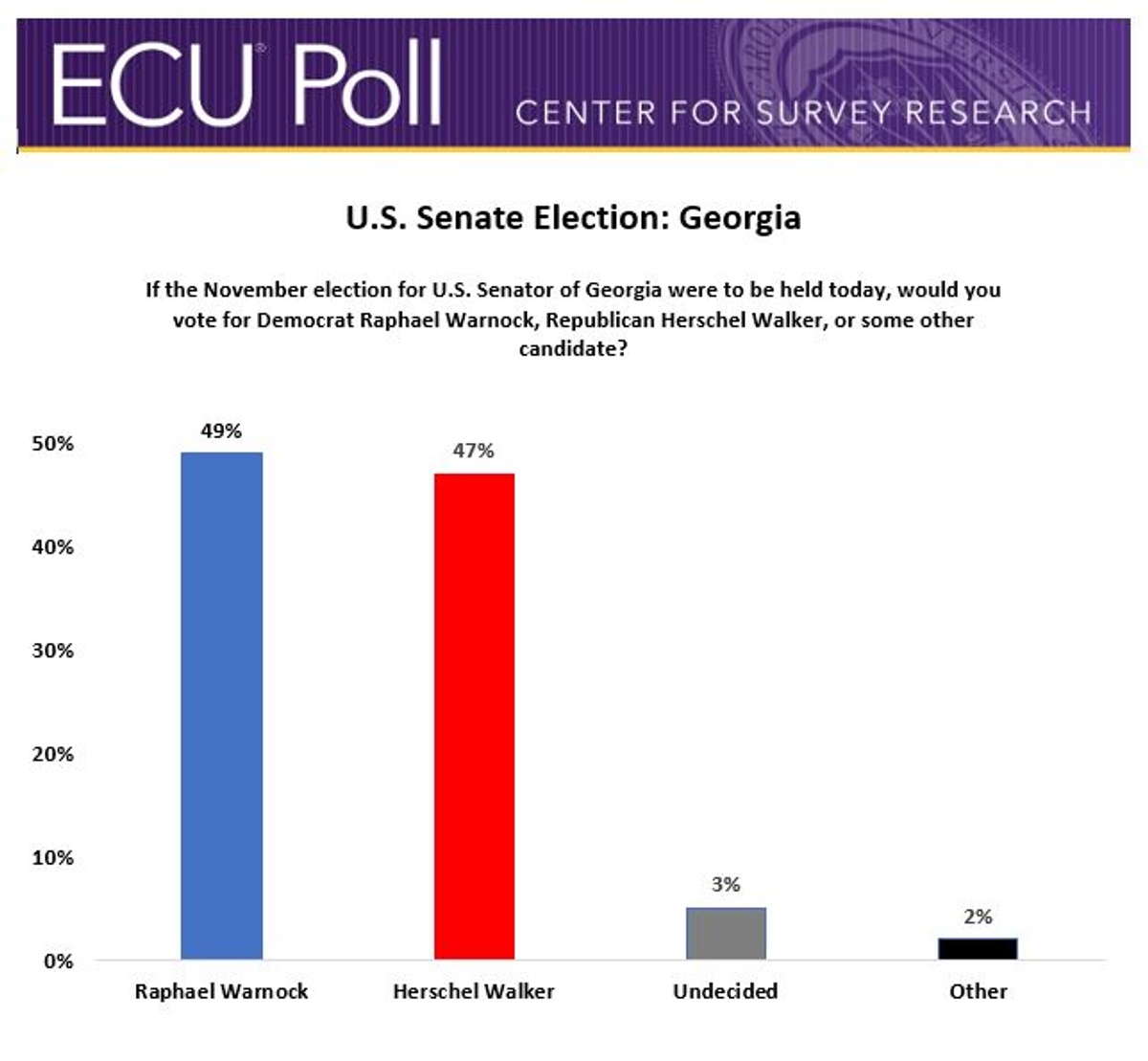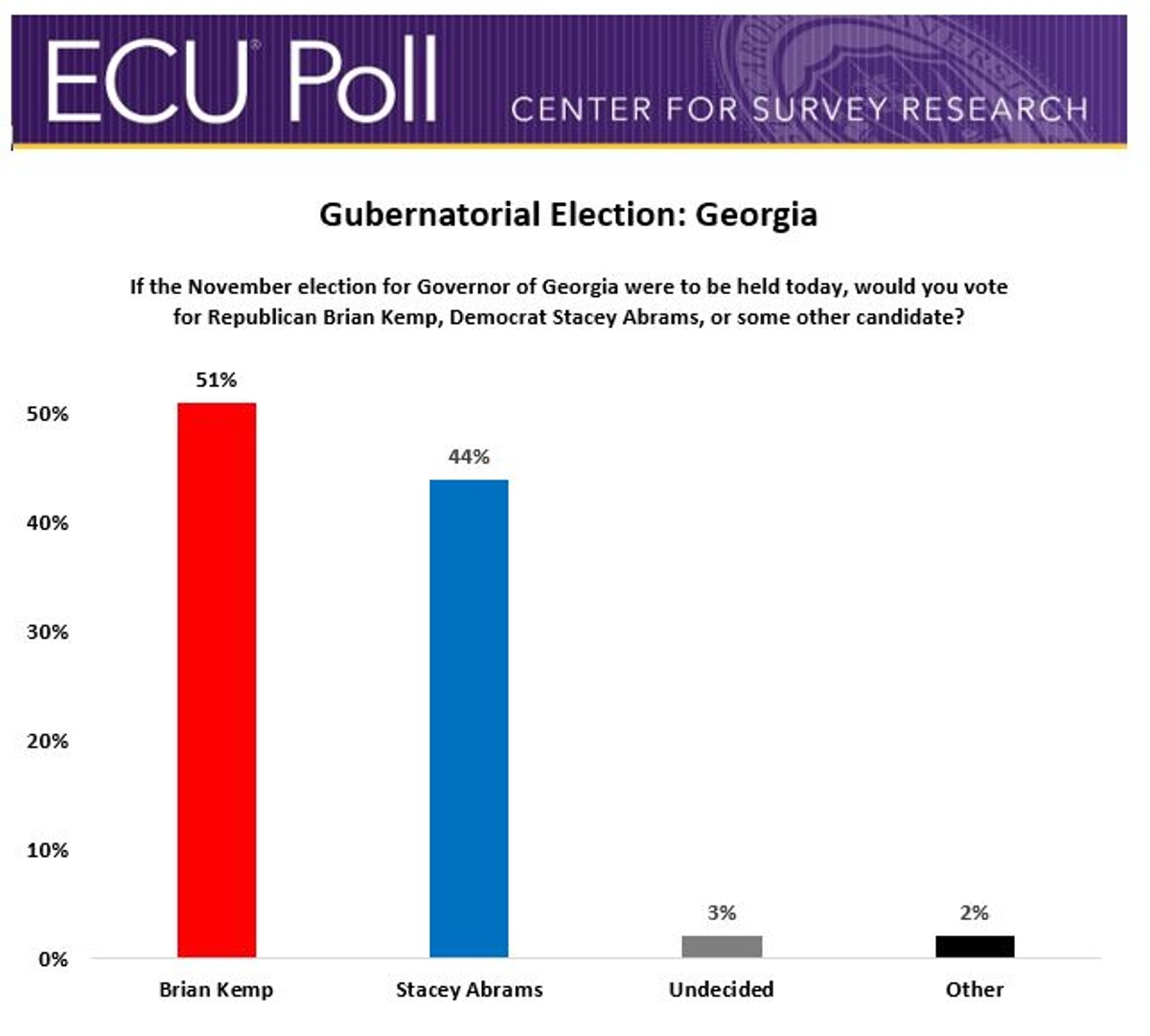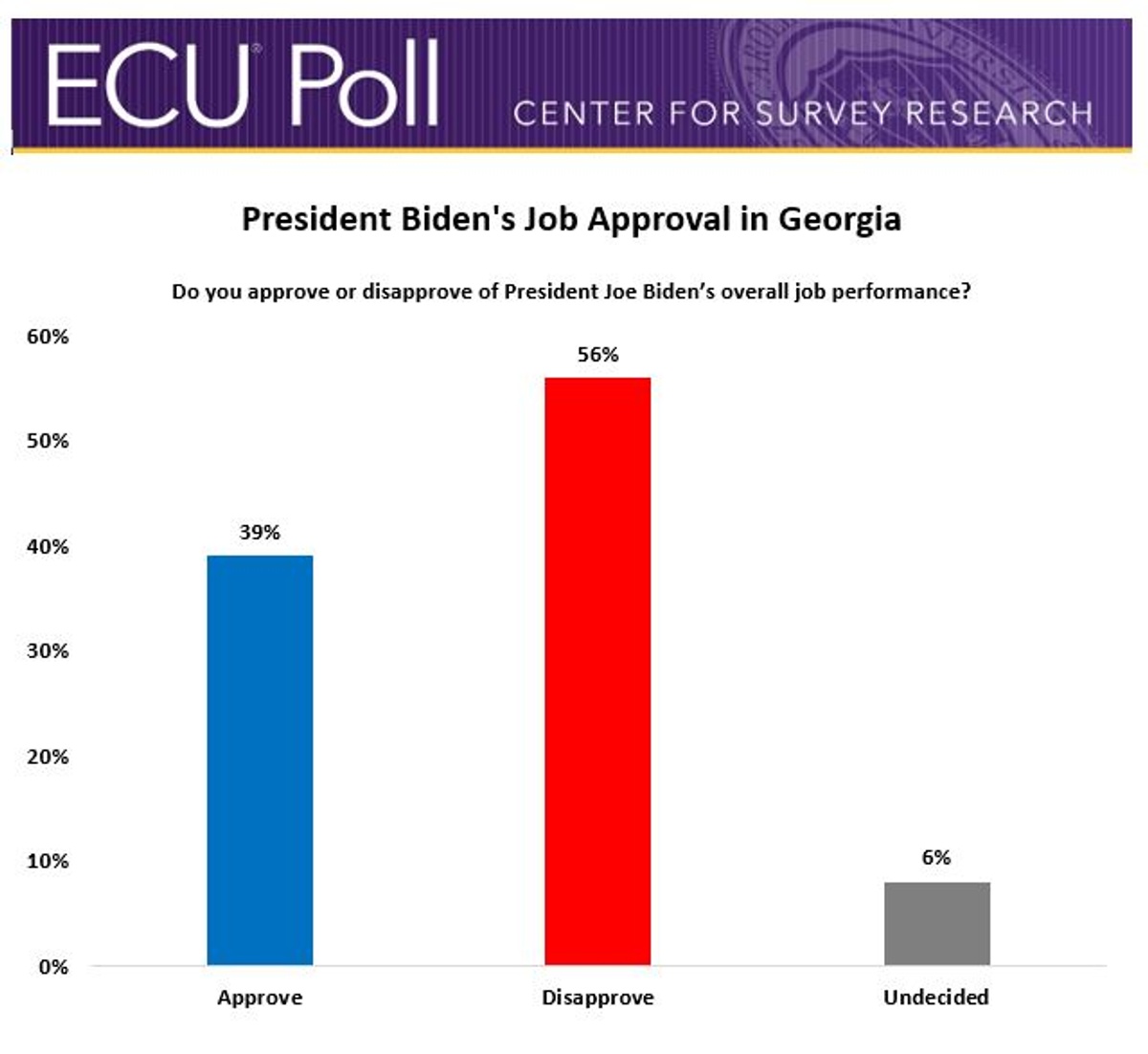A recent ECU Poll of the U.S. Senate election in Georgia shows Democrat Raphael Warnock ahead of Republican challenger Herschel Walker, 49% to 47%, among likely voters. In the race for Governor of Georgia, Republican Brian Kemp leads Democrat Stacey Abrams, 51% to 44%. (The poll was conducted October 13-18, 2022, among 905 likely voters in Georgia, with a Credibility Interval, similar to a poll’s margin of error of ±3.8 percentage points.)


The results of the poll reveal some significant divisions within the electorate. Both Republican candidates draw strong support from working-class white voters (defined as those without a four-year college degree). Among these working-class white voters, Walker is ahead of Warnock by 50 percentage points (72% to 22%), while Kemp holds a significant 77% to 15% lead over Abrams. The Republican advantage narrows among white voters with a four-year college degree. Among this segment, Walker tops Warnock, 51% to 43%, while Kemp leads Abrams, 58% to 40%.
Both Democrats, however, hold a significant advantage among non-white voters with a four-year college degree and non-white voters without a four-year college degree. This is especially the case with African American voters. Warnock leads Walker, 94% to 4%, among African Americans without a college degree and 83% to 13% among African American voters with a four-year college degree. In the gubernatorial election, Abrams leads Kemp, 92% to 5%, among African Americans without a college degree and 83% to 16% among African American voters with a four-year college degree.
The results from the poll also show significant divisions based on age. Among likely voters who are 65 years old and over, Walker holds a 55% to 42% advantage. Of those 30 to 64 years old, Walker’s advantage slips to one point (48% to 47%), while Warnock holds the lead with likely voters under 30 years old, 63% to 33%. Similarly, Kemp is ahead of Abrams by a large margin among those 65 and older, 59% to 38%. Kemp leads Abrams among those 30 to 64 years old, 52% to 41%, while Abrams has the advantage among voters under 30 years old, 61% to 39%.
By region, Warnock’s advantage is largest in the Atlanta metro area (82% to 14%). He also leads in the Atlanta suburbs (53% to 41%). Walker tops Warnock in North Georgia (71% to 21%), Coastal/South Georgia (60% to 37%), and Central Georgia (53% to 44%). Similar to Warnock, Abrams leads by a wide margin in the Atlanta metro area (76% to 18%); however, she and Kemp are tied in the Atlanta suburbs (48% to 48%). Kemp leads Abrams in North Georgia (79% to 16%), Coastal/South Georgia (63% to 35%), and Central Georgia (53% to 40%).
In addition to the Senate and gubernatorial races, respondents were asked how they plan to vote in their U.S. congressional district races. The poll’s results show that 50% of likely voters say they intend to vote for the Republican candidate and 44% say they will vote for the Democratic candidate. The six-point Republican advantage in Georgia is higher than the national average, which currently shows a three-point Republican advantage.
Complicating matters for Democrats running for office in Georgia are the low approval ratings for President Joe Biden. Currently, just 39% of likely voters in Georgia approve of President Biden’s job performance, while 56% express disapproval. Among those who approve of Biden’s job performance, 98% support Warnock and 93% support Abrams. Of those who disapprove of Biden’s job performance, 84% support Walker and 89% support Kemp.

In assessing the results of the poll, Peter Francia, Director of the Center for Survey Research and professor of political science at East Carolina University, commented: “The results in the ECU Poll indicate a challenging electoral environment for Democrats in Georgia based on the low job approval ratings for President Biden. Nonetheless, Georgia’s U.S. Senate election remains extremely competitive. In the contest for governor, Republican Brian Kemp’s seven-point lead makes him the favorite to win re-election.”
Methodology
This poll was conducted on October 13 through 18, 2022. The sample consisted of 905 likely voters in Georgia, with a Credibility Interval (CI), similar to a poll’s margin of error (MOE) of ±3.8 percentage points. It is important to remember that subsets based on gender, race, education, and age have higher margins of error, as the sample size is reduced. To ensure the sample was representative of the mid-term electorate, the data were weighted by gender, age, education, race, region, and election modeling based on previous statewide elections in Georgia. Data were collected using a cell phone sample of SMS-to-web (n=406), an Interactive Voice Response (IVR) system of landlines only (n=306), and an online panel provided by Bovitz (n=193).



